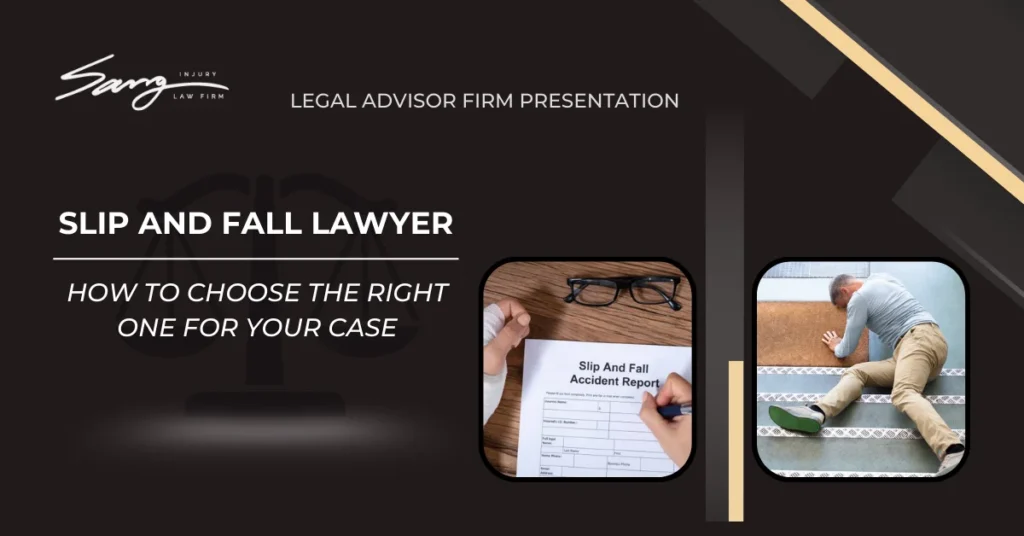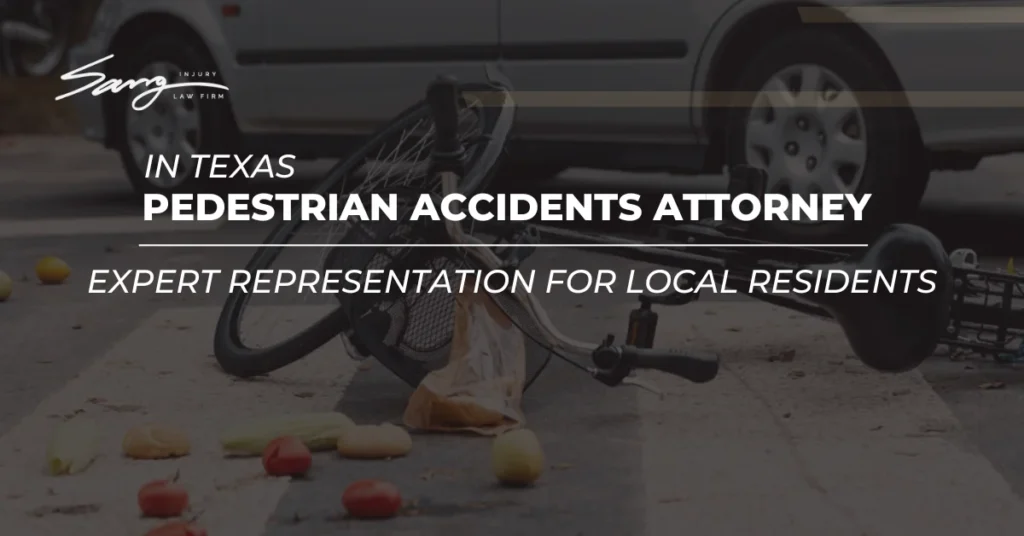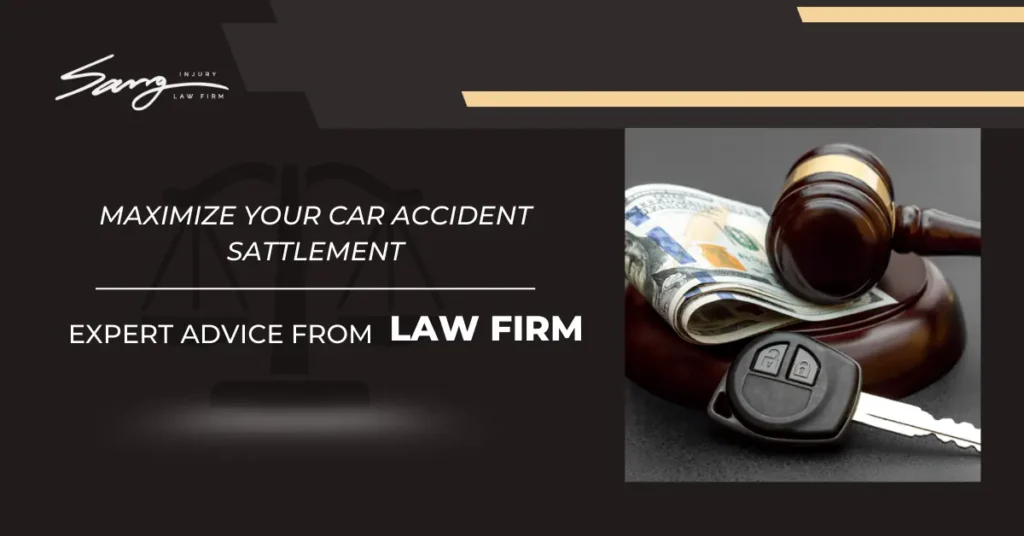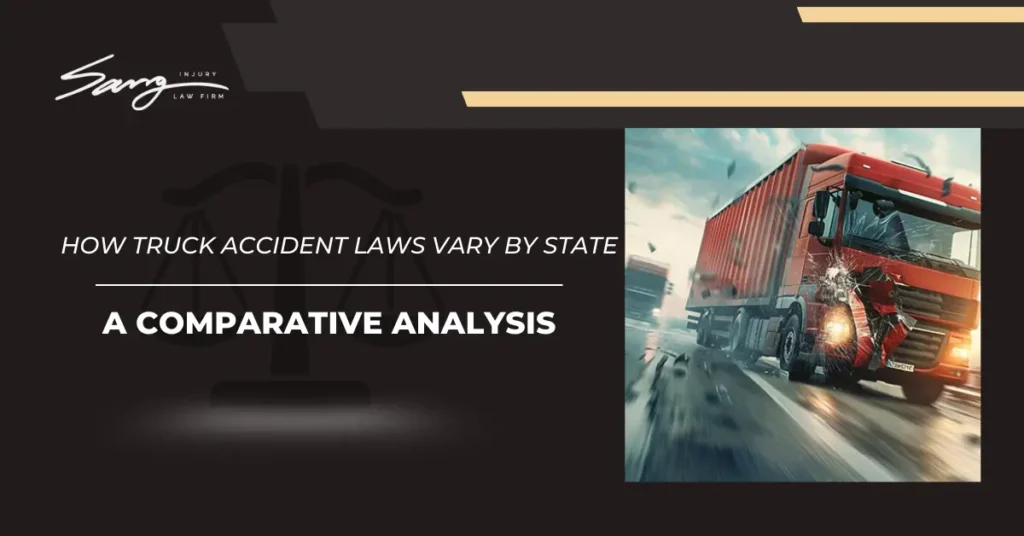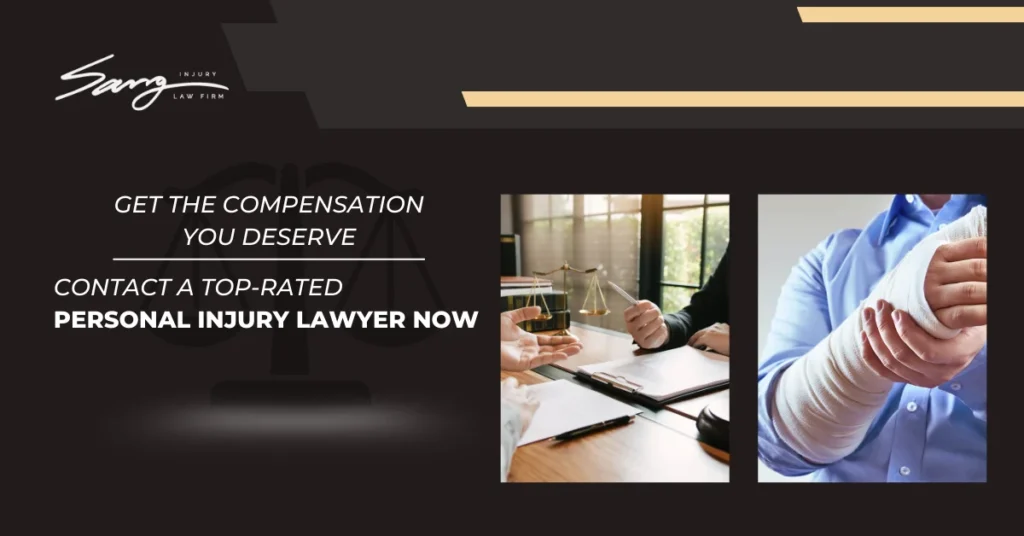Introduction
When you experience a slip and fall accident, the repercussions can be profound and transformative. Beyond medical recovery, navigating the aftermath often entails legal challenges to secure rightful compensation. Choosing the most adept slip and fall lawyer is crucial for the support and representation necessary to successfully resolve your case. This article serves as a comprehensive guide on selecting the best lawyer for your needs. It will detail critical factors to consider and offer valuable insights to help maximize your legal outcomes. By the end, you’ll be equipped with the knowledge to make an informed decision, ensuring you choose a lawyer who can adeptly handle the complexities of your case and advocate effectively on your behalf.
Understanding Slip and Fall Cases
Slip and fall incidents are a common yet complex type of personal injury claim that falls under premises liability law. This area of law dictates that property owners can be held legally responsible if someone is injured on their property due to unsafe conditions, which they were aware of but failed to amend. These conditions might include wet floors, uneven surfaces, or poorly lit stairs.
Grasping the complexities of these cases is essential. Each case hinges on whether the property owner acted negligently. As legal professionals, we examine the evidence to establish negligence, such as maintenance records, surveillance footage, and witness statements. Our goal is to demonstrate that the property owner knew, or should have known, about the danger and failed to rectify it, leading to the injury.
Knowing When to Hire a Slip and Fall Lawyer
If you have sustained injuries from a slip and fall, it’s crucial to seek medical attention immediately. Afterward, consulting with a lawyer should be your next step, especially under the following circumstances:
- The Condition Was Hazardous: If your fall was caused by a clear hazard, such as ice on walkways, loose tiles, or hidden steps.
- Knowledge of the Hazard: If there is evidence that the property owner or manager was aware of the hazardous condition but chose not to address it effectively.
- Significant Injuries: If the accident resulted in serious injuries requiring hospitalization, led to prolonged absence from work, or caused long-term health effects.
In these situations, a skilled lawyer can help by securing vital evidence, negotiating with insurers, and, if necessary, representing your interests in court to ensure you receive the compensation you deserve.
Researching Potential Lawyers
Finding the right lawyer is paramount to the success of your case. Start your search by:
- Seeking Referrals: Ask friends, family, or colleagues who have experienced similar situations for recommendations. Personal referrals can lead you to trustworthy lawyers who have proven their ability in handling these cases.
- Online Searches: Look for lawyers in your area who specialize in slip and fall or personal injury law. Websites, client reviews, and lawyer ratings can provide insights into their practice and success rates.
- Local Law Associations: Contact your local bar association for a list of qualified lawyers. They can provide you with a directory of specialists in premises liability law.
Choosing the right lawyer involves assessing their experience, strategy, and your comfort level with them. During consultations, ask about their previous cases, their approach to cases like yours, and how they communicate progress and developments. This will help you gauge whether they are the right fit for your needs.
Evaluating Their Experience and Track Record
When searching for the ideal lawyer, it’s crucial to consider those who specialize in slip and fall cases, as they bring a nuanced understanding of the legal landscape specific to these incidents. Here are key aspects to consider:
- Specialization and Experience: Look for lawyers who specifically highlight slip and fall cases as a primary area of practice. Their expertise in navigating the intricacies of premises liability will be invaluable.
- Track Record: Investigate their past case outcomes to see how they have handled similar situations. Successful past results, particularly in securing significant compensations for their clients, are a good indicator of a lawyer’s proficiency and experience.
- Client Testimonials: Reviews and feedback from former clients can provide insight into a lawyer’s effectiveness and client service. Positive testimonials can reinforce a lawyer’s credibility and approachability.
Assessing Their Strategy and Approach
During your initial consultations, which are often offered free of charge, you’ll want to assess the lawyer’s strategic approach to handling your case:
- Clarity of Legal Strategy: A competent lawyer should be able to clearly outline their planned approach and educate you on the legal processes involved. They should explain potential strategies for investigating your claim, gathering evidence, and negotiating with insurance companies.
- Proposed Case Handling: Discuss their plan for your case, including how they foresee it progressing, potential challenges, and realistic outcomes. Understanding the range of possible results can help set appropriate expectations.
- Communication: Effective communication is key. Ensure that the lawyer plans to keep you informed at every step of the process. Regular updates and accessibility for your questions and concerns are crucial for a trusting client-lawyer relationship.
Understanding Fee Structures
Most slip and fall lawyers operate on a contingency fee basis, which aligns their payment with the success of your case:
- Contingency Fee Basis: This means that the lawyer’s fee is a percentage of the settlement or court award you receive. This arrangement motivates your lawyer to work diligently to win your case and secure the highest possible compensation.
- Comprehensive Understanding of Fees: Make sure you understand all the terms related to the fee agreement. Ask about any potential additional costs such as court fees, documentation fees, and other expenses that might be incurred during the legal process.
- No Upfront Costs: One of the benefits of a contingency fee arrangement is that there are typically no upfront costs for you. This can be particularly helpful if you are facing financial strain due to medical bills and lost wages.
Checking Their Resources and Accessibility
When selecting a lawyer for your slip and fall case, it’s essential to evaluate their capacity and readiness to handle your case effectively:
- Personal Handling of Your Case: Ensure that the lawyer you are considering will personally handle your case, rather than delegating it to less experienced associates. Direct involvement from your chosen lawyer can make a significant difference in the focus and prioritization of your case.
- Availability of Resources: A well-equipped law firm can significantly enhance the strength of your case. Confirm that they have access to necessary resources such as private investigators, medical experts, and industry experts who can provide crucial insights and testimonies. These resources are invaluable for building a compelling argument on your behalf.
- Readiness to Go to Trial: While many slip and fall cases settle out of court, it’s important to choose a lawyer who is prepared to take your case to trial if necessary. This indicates their commitment to achieving the best possible outcome for you, even if it requires a more rigorous legal battle.
Making Your Decision
After meeting with potential lawyers, your final decision should be based on several personal and professional criteria:
- Comfort Level: It’s important that you feel comfortable and confident in your lawyer’s ability to manage your case. This includes their personality and the way they communicate. Feeling understood and supported can greatly ease the process for you.
- Professional Demeanor and Confidence: Evaluate their professionalism and the confidence with which they discuss handling your case. A lawyer who displays confidence, backed by a solid track record and clear strategy, is likely to be more effective in representing your interests.
- Clarity and Transparency of Communication: Ensure that the lawyer communicates in a clear and straightforward manner. They should be transparent about the possible outcomes of your case and honest about the challenges you might face. Regular updates and responsiveness to your queries are crucial for maintaining a good lawyer-client relationship.
Conclusion
Choosing the right slip and fall lawyer is a pivotal step in ensuring you are fairly compensated for your injuries and losses. By thoroughly researching and evaluating potential lawyers based on their experience, approach, and resources, you can find a professional who not only understands the intricacies of slip and fall cases but also resonates with your personal and legal needs. Remember, the right lawyer will not only advocate for your rights but will also guide you through every step of the process with confidence and care. Choose wisely to protect your interests and secure the best possible outcome for your case.

